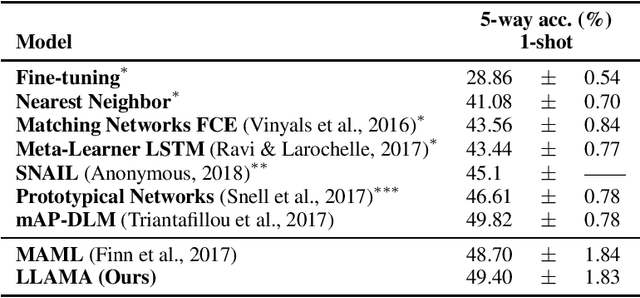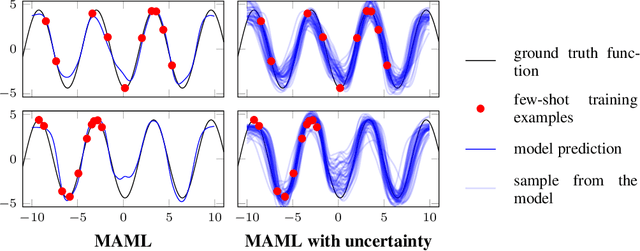Recasting Gradient-Based Meta-Learning as Hierarchical Bayes
Paper and Code
Jan 26, 2018


Meta-learning allows an intelligent agent to leverage prior learning episodes as a basis for quickly improving performance on a novel task. Bayesian hierarchical modeling provides a theoretical framework for formalizing meta-learning as inference for a set of parameters that are shared across tasks. Here, we reformulate the model-agnostic meta-learning algorithm (MAML) of Finn et al. (2017) as a method for probabilistic inference in a hierarchical Bayesian model. In contrast to prior methods for meta-learning via hierarchical Bayes, MAML is naturally applicable to complex function approximators through its use of a scalable gradient descent procedure for posterior inference. Furthermore, the identification of MAML as hierarchical Bayes provides a way to understand the algorithm's operation as a meta-learning procedure, as well as an opportunity to make use of computational strategies for efficient inference. We use this opportunity to propose an improvement to the MAML algorithm that makes use of techniques from approximate inference and curvature estimation.
 Add to Chrome
Add to Chrome Add to Firefox
Add to Firefox Add to Edge
Add to Edge